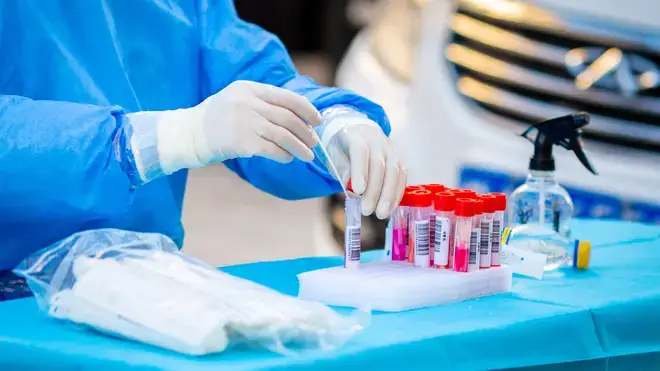A controversial project aiming to create artificial DNA from scratch is in the works.
The endeavour, which is called SynHG (Synthetic Human Genome) and is believed to be a world first, has received an initial £10m from medical research charity The Wellcome Trust.
It is hoped to accelerate treatments for many incurable diseases by potentially accelerating the development of safe, targeted, cell-based therapies.
Michael Dunn, director of discovery research at Wellcome, said the project is at the "forefront of one of the most exciting areas of scientific research".
"Through creating the necessary tools and methods to synthesise a human genome we will answer questions about our health and disease that we cannot even anticipate yet, in turn transforming our understanding of life and wellbeing," he added.
The five year project involves researchers from the universities of Kent, Cambridge, Manchester, Oxford, and Imperial College London, among others.
Professor Jason Chin, founding director of the Generative Biology Institute at Ellison Institute of Technology (EIT), Oxford, said: "The ability to synthesize large genomes, including genomes for human cells, may transform our understanding of genome biology and profoundly alter the horizons of biotechnology and medicine.
"With SynHG we are building the tools to make large genome synthesis a reality, and at the same time we are pro-actively engaging in the social, ethical, economic and policy questions that may arise as the tools and technologies advance."
The project's work is to be confined to test tubes and dishes and there will be no attempt to create synthetic life.
However, some fear there is.a chance of enhanced or modified humans being created.
"We like to think that all scientists are there to do good, but the science can be repurposed to do harm and for warfare," Dr Pat Thomas, director of the campaign group Beyond GM, told the BBC.
Today marks the 25th anniversary of the announcement of the first draft of the Human Genome Project, which allowed scientists to read all human genes like a bar code.
The latest research pursuit will take things a step further – by enabling researchers to not just read a molecule of DNA, but create parts of it – and perhaps one day all of it.


